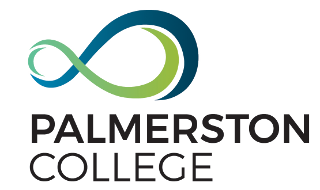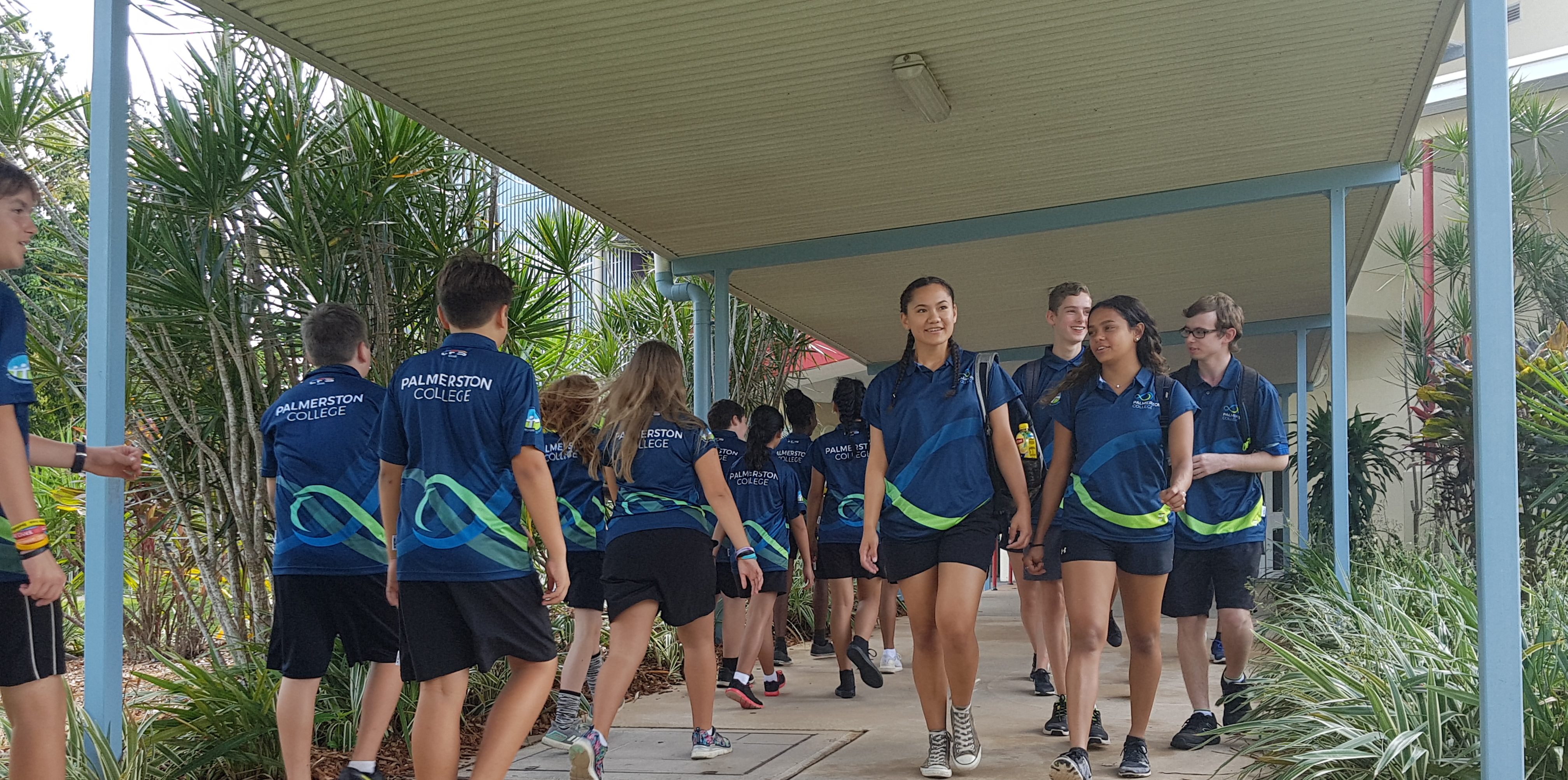Department of Education Policy
For all Department of Education policies, click here to proceed to the DOE website.
Mobile Phone Policy
Student mobile phones in government schools policy
Policy
Student mobile phones are not permitted to be used in Northern Territory Government schools and are to be switched off and away all day. Exemptions apply for teacher directed educational purposes or for medical reasons.
Palmerston College respects the right of parents who wish to provide their child with a mobile phone. This policy details the conditions under which mobile phones are permitted at Palmerston College.
This policy applies to mobile phones, smart watches and all other devices that allow electronically based distractions. Smart watches will need to be switched to flight mode while students are in school.
Conditions of use
The use of mobile phones for all secondary students is not permitted from the time students enter the College grounds to the conclusion of the school day, unless under the instruction of a teacher or staff member. Student mobile phones must be off and away all day and stored securely. Smart watches must be placed on flight mode so phone calls and messages cannot be sent or received during the school day.
Mobile phones owned by students at Palmerston College are considered valuable items and are brought to school at the student’s or parent’s risk.
Please note that Palmerston College does not have accident insurance for accidental property damage or theft of personal items. Students and their parents are encouraged to obtain appropriate insurance for their personal items.
Exemptions
It is acknowledged that mobile devices can be powerful education tools when used responsibly. Many teachers and students in Palmerston College use devices in ways that support educational outcomes, including accessing information and resources, taking photos or videos of learning activities, playing educational games, and collaborating with other students. For some students, mobile phones and apps are critical for monitoring their health condition.
As such, students may be granted an exemption to use their mobile phone and smart watch during the school day:
• to monitor a health condition as part of a college approved documented Health Care Plan
• for a particular educational purpose under the direct instruction of a teacher
• with permission of a teacher for a specific purpose
• in the event of an emergency
• to make payments at the Campus Canteen or Front Office
Where a student has been granted an exemption, the mobile phone can be used by the student; however, its use will be monitored by College staff.
The Exemption paperwork can be accessed here: Mobile Phone Policy Exemption.
Communication
All communication between parents and students, during school hours, is to occur via the front office.
Palmerston College has duty of care for all students when they are attending the College. In emergencies, where students need to get in contact with parents, students are to notify the appropriate college staff. If parents need to contact their children, they are asked to contact the College office directly.
Non-compliance of this policy
Students who use their mobile phones inappropriately at Palmerston College may be issued with consequences consistent with the College’s School Wide Positive Behaviour Support Framework.
At Palmerston College inappropriate use of mobile phones is any use during school hours unless an exception has been granted.
Students who do not comply with this policy will have their mobile phone confiscated and held at the office. The student will need to collect their mobile phone at the end of the school day.
In the case of repeated inappropriate mobile phone usage by a student, the mobile phone will be confiscated and held at the office. The parent will be informed and could be requested to collect the mobile phone.
Further action, in accordance with College School Wide Positive Behaviour Support handbook may be a result of repeated breaches and or depending on the circumstances of the breach.
Related DOE and Palmerston College Policies and Procedures
• DOE – Student mobile phones in government schools – policy
• DOE – Information for families: Mobile phones in schools
• Palmerston College – School Wide Positive Behaviour Support Handbook
• Palmerston College – School Wide Positive Behaviour Support – Student Expectations Chart
• Palmerston College – Consistent Expectations
Uniform Policy
Dress Matters!
Students are reminded that uniform standards apply at Palmerston College.
Dress Code
- College polo shirt
- Black coloured shorts, jeans, trousers or skirts of appropriate length (at least mid-thigh)
- Tights are permitted if shorts/skirt are worn over the top
- Enclosed shoes
Unacceptable Dress
- Students without College polo shirt
- Untidy/dirty uniform
- Ripped/torn clothing
- Very short skirts/shorts
- Tights/leggings or bike shorts
- Light/multi-coloured clothing
- Any shorts other than plain black shorts – including stripes, logos, coloured panels etc
- Spikey/sharp or dangerous jewellery
- Open shoes/thongs/sliders
Assessment Policy 7-12
Rationale:
Assessment is an integral part of the teaching and learning process. It enables teachers to make accurate grade judgments on student progress. To be effective it needs to have students completing work to a planned schedule (work deadline). At Palmerston College work deadlines apply on the submission of Draft and Final Copies of assessment tasks. This ensures that all students are treated consistently and that appropriate time is given to all students to complete tasks. Palmerston College believes that the submission of the assessment task in Draft format (where appropriate) is crucial in that it allows for feedback to be provided and student’s best work to be submitted as the final copy.
Aims:
- To encourage student participation in the teaching and learning process.
- To assist students in developing time management skills.
- To allow students to submit draft assessment and receive appropriate feedback from teachers in a timely manner to support the final assessment.
- To help students achieve their best.
- To ensure that Palmerston College complies with relevant DOE and SACE Board guidelines.
Types of Assessment:
Assessment describes information a teacher collects as evidence of a student’s current achievement. A range of assessment strategies should be used including diagnostic, formative and summative.
Assessment is divided into two groups, formative and summative assessment.
Formative assessment, assessment for learning, enables teachers to use information about learner progress to inform their teaching practice (Northern Territory Board of Studies, 2018-2020). In Years 7-9 formative assessment forms part of the ‘Portfolio of Evidence’ and appears on student reports. This contributes to the teacher judgment of student progress against Achievement Standards. In Years 10-12 formative assessment does not contribute to student grade determination.
Summative assessment (Common Tasks) is assessment of learning. It assists teachers to use evidence of student learning to assess learner achievement against goals and standards’*. It provides summative information on a learner’s achievement at a point in time for reporting purposes (Northern Territory Board of Studies, 2018-2020).
* Standards can refer to Achievement Standard (7-9) or Performance Standards (10-12).
In Year 7-9 the final grade (semester grade) is determined using all evidence of learning collected including summative (common) assessment tasks and the portfolio of evidence. In Year 10-12 the final grade is determined using the summative tasks as outlined in the approved Learning and Assessment Plan (LAP). All summative task grades will appear on semester reports.
Teacher Responsibilities:
- Provide a range of opportunities for students to demonstrate their learning
- closely monitor the progress of individuals and the impact of assessment practices ensuring that students receive regular and timely feedback on their achievement and progress throughout the teaching and learning sequence
- Use appropriate informal and formal, diagnostic, formative and summative assessment strategies to assess student learning
- Analyse and evaluate student assessment data to identify required interventions and modify teaching practice
- Give students timely, targeted feedback about their progress relative to their learning
- Participate in processes to support consistent and comparable judgements of student learning, i.e. QAC as described in Appendix A.
- Provide students and families with a college approved Assessment Outline covering how they will be assessed (dates, nature of task, assessment criteria) by the end of week 3 of each semester, or week 3 of semester 1 for Year 12 classes.
- Add tasks and due dates to Compass when Assessment Outline is complete. Ensuring tasks are visible to students and parents.
- Provide students with Assessment Task sheets on approved college templates (printed and electronic) that cover:
- Task requirements
- Date of draft submission
- Date of final submission
- Marking scheme (rubric covering Achievement Standards or Performance Standards)
- Negotiate with students on submission dates and potential extensions when required (Appendix 3). Special Provisions can also be considered at this point. Students with approved Special Provisions may have different assessment conditions.
- Provide feedback to students on draft work submitted within one week of submission.
- Set a final submission date an appropriate time after feedback has been provided. Special Provisions and EAP may result in variation in final submission dates.
- Monitor progress of approved extended tasks (Appendix 3). This has the added benefit of helping check the authenticity of student work.
- Retain copies of work in progress to be marked as a draft if needed.
- Talk to student and contact home when draft is not submitted (Appendix 2) or Extension is requested (Appendix 3).
- Arrange for a new due date (where appropriate) and provide opportunities for student to be supported in completing task (access to homework centre, opportunity to work at lunchtime).
- The Extension forms (Appendix 3) is kept by the teacher and once work due date is passed the form is given to the Administration to put into the students file.
- Contact parents and guardians advising them that a draft will be marked when a final submission is not made.
- Add final grades to Compass within 2 weeks of final submission date.
- Contact parents and guardians when an N grade is being awarded
PLTL Curriculum Responsibilities:
- As above for classes they teach.
- Check all Assessment Outlines, Assessment Task Sheets and Compass for classes within their curriculum area.
- Ensure that Compass is updated to reflect Assessment Outlines where tasks are common to multiple classes.
Student Responsibilities:
- Keep assessment outlines for all subjects they are enrolled in.
- Manage their work load to ensure they submit work (draft and final) on time.
- Ensure that draft work they submit is a completed version of their task.
- Learn to access Compass to monitor due dates and progress grades.
- Arrange to get work submitted when they are unable to attend school on the date work is due (email to teacher, send in with parent / guardian, or upload to Compass).
- Contact teacher to make alternative arrangements.
- Discuss the need for an extension with parents or guardians and complete the Extension Form Request 48 hours prior to the due date of the task. (Appendix 3)
- Receive and action feedback provided by class teacher on draft assessments.
Parents are encouraged to:
- Access Compass to monitor due dates for Assessment and view final grades.
- Retain Assessment Outlines for all subjects.
- Ensure assessment is completed by students.
- Contact the school when needed to discuss assessment.
- Sign Extensions Requests after discussion with students or give approval over the phone for an Extension. (Appendix 3)
Procedures for Non-submission of Work:
Draft
The non-submission of a draft piece of work will result in parents or guardians being contacted by the class teacher to discuss the missing piece of work. The outcomes of this discussion could be:
- Evidence collected in class being used as a draft and feedback provided.
- An agreed date for the draft to be submitted.
- Opportunities being provided for the student to complete the draft (recess or lunch detention with class teacher, work in the library afterschool supervised by college staff).
Final Due Date
No marks will be awarded for work submitted after the final assessment deadline unless an extension was negotiated with the class teacher 48 hours prior to this date (Appendix 3). Teachers will grade students based on the draft work submitted earlier. Parents will be advised that draft work is being used to derive a final grade.
Appeals Process:
Where a student or parent / guardian wishes to appeal a college decision (granting of extension, allocated grade etc…) they should contact the College Executive member supporting the Year level of the student. College Executive will investigate and respond to student or parent / guardian.
Related Policies:
Palmerston College Pending Policy & Process
SACE Board – Assessment and Reporting Guidelines
SACE Board – Assessment Deadline Policy
SACE Board – Redrafting of Assessed Work Policy
SACE Board – Word Count Policy
SACE Policies can be found on the SACR Board website at https://www.sace.sa.edu.au/about/policies
If you are a parent or carer looking for our online forms, please proceed to our Student & Parent Resources page


